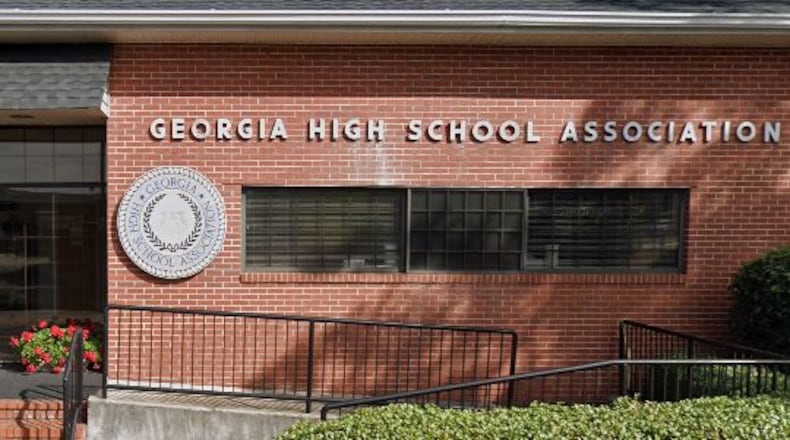With an abundance of trepidation, the Georgia High School Association is ready to pass a bylaw Monday that will allow athletes to profit from their name, image and likeness.
GHSA president Jim Finch supports the plan but does not love it. He’s the chairman of the GHSA’s board of trustees, which made the proposal that will go before the GHSA’s 75-member executive committee in Macon.
“The only good I see in the NIL bylaw right now is that at least we’re in front of any litigation or legislation that may force us to do it,’’ Finch said. “My viewpoint may change on that in the future. I’m a capitalist and a realist, which is to say I’m all for capitalizing on opportunities, but we need to proceed with caution. I think the NCAA went into this thing without any guardrails, and I can foresee schools in the GHSA membership abusing NIL opportunities for undue influence and recruiting. Under that situation, the rich will get richer and the poor will get poorer.”
The GHSA’s proposed guardrails would make it illegal for schools and boosters to provide NIL money as incentive for athletes to enroll or remain enrolled at a school. That means no collectives like those in college sports that collect and disperse booster funds.
“But I’m not convinced buffer personnel or a line item in a booster club’s budget won’t find their way into the NIL world, which could in turn influence a student to attend or transfer from a certain school,’’ Finch said. “I want to be positive, not jaded, about this new landscape. But I’m also trying to be real and not naïve.”
Other GHSA stipulations would make it illegal for athletes to use their schools’ logos, uniforms, mascots, names or trademarks in any monetary deals. Athletes may not accept money that is linked to a specific sports achievement or performance. Athletes must report NIL deals to their schools within seven days to allow GHSA oversight.
NIL deals became legal in college sports in July of 2021. GHSA executive director Robin Hines initially opposed them for high school athletes but came to realize the GHSA’s need to address it. He studied and met with other states that adopted bylaws. Hines’ primary concern was preserving amateur status and banning pay to play from school to athlete.
Hines addressed the GHSA’s board of trustees in January and began formulating a plan, so Monday’s vote has been months in the making.
“From most states that have adopted NIL rules, they keep amateur rules in place,’’ Hines said. “They recognize that individuals own their own name, image and likeness and can endorse products on their own as long as they don’t include the intellectual property of the school or the state association.”
Georgia would become the 30th state high school association to approve NIL deals and one of the leaders in the South. North Carolina and Virginia, which came on board this year, and Louisiana currently allow NIL deals, but Florida, Alabama, South Carolina, Tennessee, Mississippi and Texas do not.
GHSA’s proposed guidelines for NIL:
A student-athlete may benefit from the use of their name, image and likeness (NIL) ... provided:
- The compensation is not contingent on specific athletic performance or achievement.
- The compensation is not provided as a incentive to enroll or remain enrolled at a specific school.
- The compensation is not provided by the school or any person acting as an agent for the school.
The following guidelines are in effect for NIL activities:
- No “marks” may be used including, but not limited to, school logos, school name, school uniforms, school mascot, or any trademarked GHSA logo or acronyms.
- No school apparel or equipment shall be worn, which includes school name, school uniforms, school logo, school mascot or any apparel displaying trademarked GHSA logos or acronyms.
- No member school facility may be used for the purpose of name, image and likeness activities.
- No activities in conflict with a member school’s local school district policy may be endorsed. (Examples include, but are not limited to, tobacco products, alcohol products and controlled substances.)
- Students and their families should seek professional guidance as to how NIL activities could impact collegiate financial aid and/or tax implications, among other issues.
- Within seven (7) calendar days after entering into any type of NIL contract/agreement, a student, or the student’s parents/guardians, must notify the Principal or Athletic Director of the student’s school of entering into that agreement.
About the Author
The Latest
Featured
